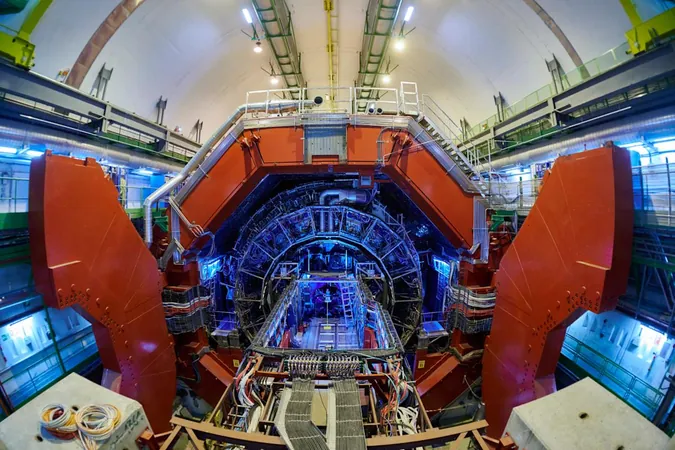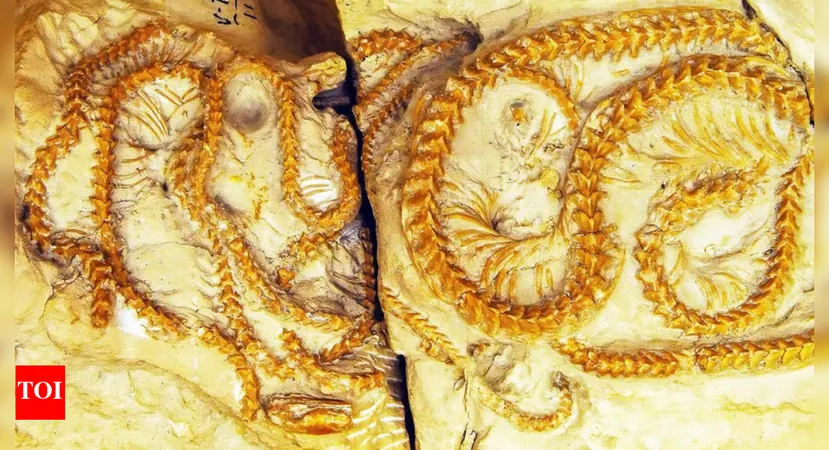
The Alchemist's Dream: Scientists Transform Lead into Gold Using the LHC!
2025-05-11
Author: Wei Ling
From Fantasy to Reality: Turning Lead into Gold!
In a groundbreaking achievement reminiscent of the legendary pursuits of medieval alchemists, scientists at CERN have successfully transformed lead into gold—albeit for just a fleeting moment. Utilizing the unparalleled power of the Large Hadron Collider (LHC), researchers have taken a profound step toward realizing a long-held dream of alchemy.
The Science Behind the Magic: How the LHC Works
The LHC, the most formidable particle accelerator on the planet, usually smashes lead ions together at mind-bending speeds. This process mimics the extreme conditions of the early universe right after the Big Bang, creating hot and dense matter. During these high-energy collisions, scientists observed unexpected phenomena where lead nuclei would occasionally lose protons or neutrons, allowing them to briefly morph into gold.
A Glimpse of Gold: The Results of the Experiments
Though the gold produced in these experiments is minuscule—about 29 picograms during trials from 2015 to 2018—the recent enhancements to the LHC have nearly doubled this yield. However, this amount remains trillions of times less than what would be required for even a single piece of jewelry. Instead of chasing after riches, CERN's scientists are more fascinated by the dynamics of this extraordinary transmutation.
A New Era in Nuclear Research!
Marco Van Leeuwen, spokesperson for the A Large Ion Collider Experiment, expressed excitement about these findings, stating, "Our detectors are capable of handling intense collisions that produce thousands of particles, while remaining sensitive enough to detect rare events where only a few particles are involved. This enables us to delve deep into the processes of electromagnetic nuclear transmutation."
What Lies Ahead for Nuclear Alchemy?
This discovery isn’t just a win for those dreaming of wealth; it opens doors to understanding nuclear interactions on a profound level. As scientists continue to explore the frontiers of physics, who knows what other mysteries of the universe await unearthing?


 Brasil (PT)
Brasil (PT)
 Canada (EN)
Canada (EN)
 Chile (ES)
Chile (ES)
 Česko (CS)
Česko (CS)
 대한민국 (KO)
대한민국 (KO)
 España (ES)
España (ES)
 France (FR)
France (FR)
 Hong Kong (EN)
Hong Kong (EN)
 Italia (IT)
Italia (IT)
 日本 (JA)
日本 (JA)
 Magyarország (HU)
Magyarország (HU)
 Norge (NO)
Norge (NO)
 Polska (PL)
Polska (PL)
 Schweiz (DE)
Schweiz (DE)
 Singapore (EN)
Singapore (EN)
 Sverige (SV)
Sverige (SV)
 Suomi (FI)
Suomi (FI)
 Türkiye (TR)
Türkiye (TR)
 الإمارات العربية المتحدة (AR)
الإمارات العربية المتحدة (AR)